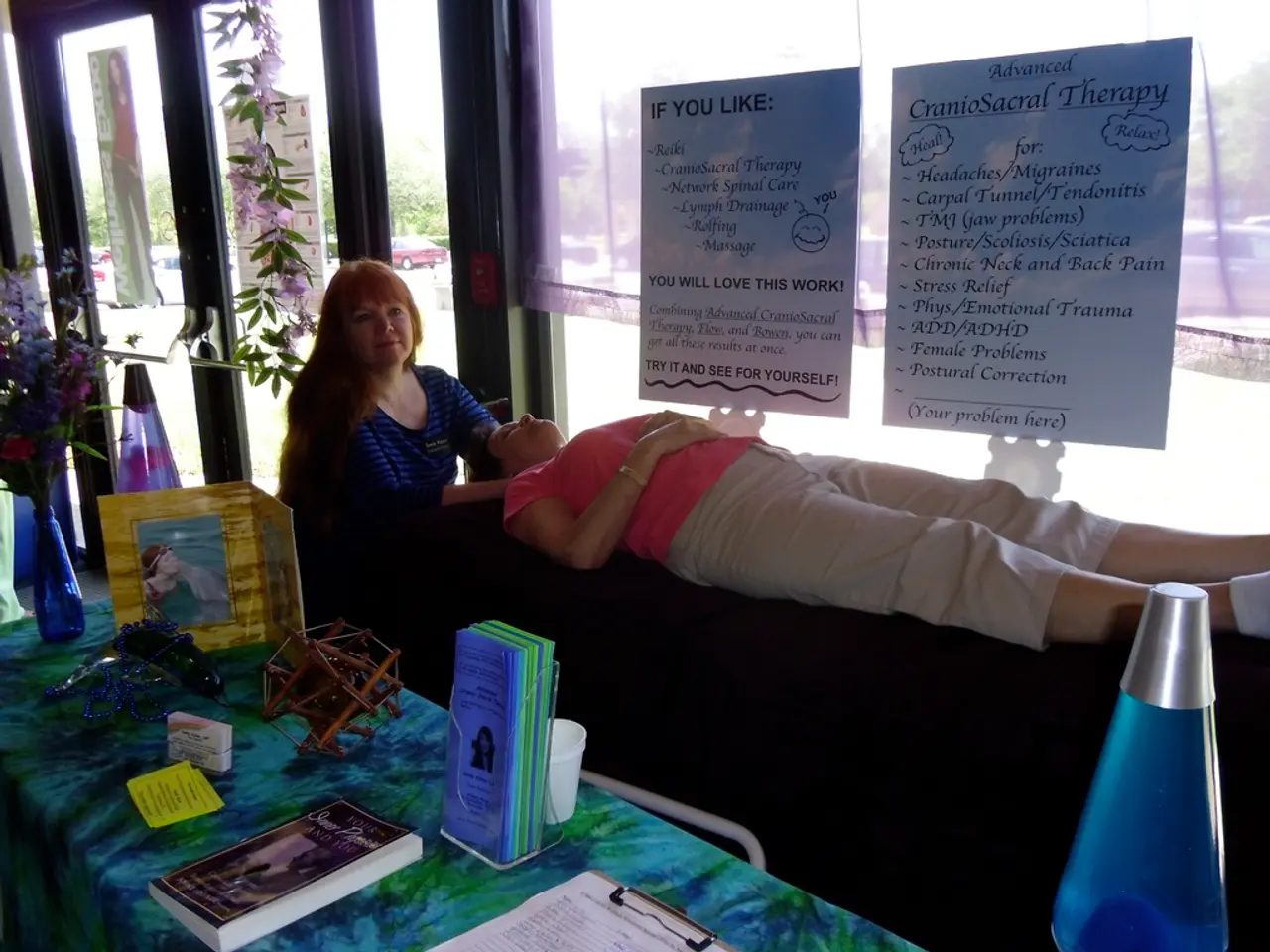Reinforcing Long-Distance Connections through Counseling Sessions
In the era of digital connectivity, long-distance relationships (LDRs) are becoming increasingly common. However, these romantic connections can present unique challenges, such as loneliness, emotional isolation, and communication difficulties. A new approach, offered by Be BOLD Psychology and Consulting, is helping couples overcome these hurdles and maintain loving and lasting bonds across vast distances.
Be BOLD's relationship intensives, available to clients living in any of the 42 PSYPACT states, are designed to help LDR couples make meaningful progress in a short period of time. By offering tailored interventions, these intensives foster deeper connection, improve communication, and rebuild intimacy despite physical separation.
One of the key areas where therapy excels is communication. With structured guidance, partners can express feelings and needs more openly, reducing misunderstandings that often arise in LDRs. Tools like conversation cards or journaling, suggested by therapists, can greatly enhance meaningful exchanges.
Therapy also aids couples in exploring emotional closeness, preventing partners from feeling like distant acquaintances. By encouraging vulnerability and authentic sharing, therapy helps build emotional intimacy, even without physical proximity.
In addition, therapy encourages partners to understand their own and their partner’s behaviors and thought patterns. This insight can reshape perceptions and foster empathy, essential for managing the inevitable stressors and conflicts in LDR dynamics.
Practical tools for daily interaction are another crucial aspect of therapy for LDRs. Therapists may assign exercises or recommend resources to maintain ongoing connection and a sense of togetherness despite the miles. For example, touch bracelets that mimic physical presence or shared journaling can help couples feel closer.
Trust is another significant challenge in LDRs. Therapy creates a safe space to address these sensitive topics, rebuild trust, and manage conflicts constructively. With techniques for building and maintaining trust, therapy equips couples with the skills needed to navigate the challenges of LDRs.
Setting clear relationship goals is vital to sustain motivation and alignment in LDRs. Therapy helps couples clarify their commitment and future plans, giving long-distance relationships direction and purpose.
Online communities, strong support systems, and shared activities can offer additional comfort and encouragement to LDR couples. Regular scheduled calls and video chats, texting and messaging apps, and even watching the same movie or playing online games can help maintain a sense of connection.
With professional support, LDRs can thrive and become even stronger. By addressing the unique challenges these relationships face and providing the tools and strategies needed to nurture and strengthen bonds, therapy offers a beacon of hope for long-distance lovers.
Therapists at Be BOLD Psychology and Consulting offer therapies and treatments designed to help long-distance couples make meaningful progress, including intensives tailored to improve communication, foster deeper connection, and rebuild intimacy. Therapy can help partners engage in meaningful exchanges with tools like conversation cards or journaling, and aid couples in understanding their own and their partner’s behaviors and thought patterns to foster empathy and manage LDR challenges effectively.
Therapy also focuses on emotional intimacy and trust by encouraging vulnerability, authentic sharing, and providing a safe space to address sensitive topics. Setting clear relationship goals and using online communities, strong support systems, and shared activities are additional strategies to maintain connection and purpose in a long-distance relationship. With professional support, long-distance relationships can thrive and become even stronger.
Although some may assume that health-and-wellness, mental-health, and lifestyle aspects are secondary in LDRs, therapy identifies their importance in creating strong and lasting bonds across vast distances. By addressing mental-health issues, maintaining emotional closeness, and providing practical tools for daily interactions, therapy bridges the gap in long-distance relationships and contributes significantly to relationships' health and wellness.
In fact, science supports the benefits of therapy for long-distance couples, highlighting its role in promoting healthy, fulfilling, and resilient relationships. By incorporating therapies and treatments into their lifestyle, LDR couples can overcome challenges and build their mental-health resilience, ultimately enhancing their overall quality of life and relationships.




